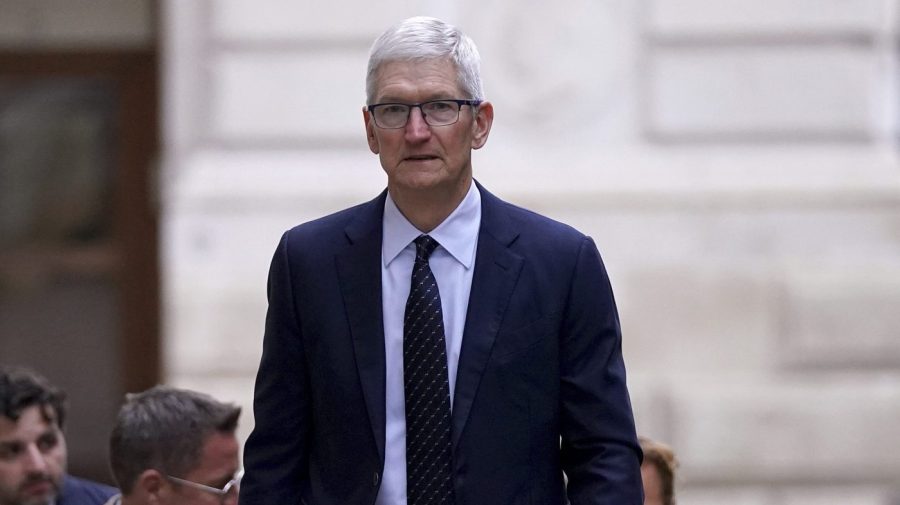Apple expecting $1.1B in tariff costs next quarter

Apple expects to face $1.1 billion in tariff-related costs next quarter, on top of $800 million from the previous three-month period, Apple CEO Tim Cook said Thursday.
The iPhone maker, which has been hit particularly hard by President Trump’s tariff push, still reported strong quarterly earnings, posting $94 billion in revenue and $23.4 billion in net income for the stretch between April and June.
Apple sold $44.5 billion worth of iPhones last quarter, up 13 percent from the same three-month period last year, at least part of which the company attributed to consumers trying to get ahead of tariffs.
“We would estimate the pull-forward of demand into April specifically to be about one point of the 10 points in terms of people buying because of discussions about tariffs,” Cook said, referencing the 10 percent up-tick in sales last quarter.
The company has found itself in a tricky position on tariffs in Trump’s second term. It has long manufactured most of its products in China but has increasingly sought to diversify its supply chain by moving some production to India and Vietnam.
This has been less than beneficial given the president’s wide-ranging approach to tariffs this time around. Trump initially hit all three countries with hefty “reciprocal” tariffs before putting most on pause.
Tariffs on Chinese goods remained in place, as Washington and Beijing went tit-for-tat on import taxes, raising levies on one another to 145 percent and 125 percent, respectively.
The two sides eventually struck an agreement to lower their tariffs to 30 percent and 10 percent, a truce they agreed to extend Tuesday for an additional 90 days.
In the meantime, Apple has shifted more production to India, prompting the country to overtake China as the leading exporter of smartphones to the U.S. last quarter. India saw a massive 240 percent increase in American smartphone shipments compared to the same time last year.
However, the tariff situation continues to shift. As Trump’s pause on “reciprocal” tariffs was poised to expire Friday, he announced several new trade deals and tariff rates on dozens of countries.
In early July, Trump said he reached a deal with Vietnam, in which U.S. goods would enter the country duty-free while Vietnamese imports would face a 20 percent tariff and shipments through Vietnam would face a higher 40 percent rate.
He announced Thursday that India would face a 25 percent tariff, in addition to a penalty for buying military equipment and energy from Russia.
While Apple grapples with an ever-changing tariff environment, it is also attempting to compete with other tech giants on artificial intelligence (AI), a space where it seems to have lagged behind.
Cook said Thursday that the iPhone maker plans to “significantly” expand its investments in the technology, while also underscoring the company is “very open” to mergers and acquisitions that “accelerates our road map.”
“We see AI as one of the most profound technologies of our lifetime,” he said on Thursday’s earnings call. “We are embedding it across our devices and platforms and across the company. We are also significantly growing our investments.”